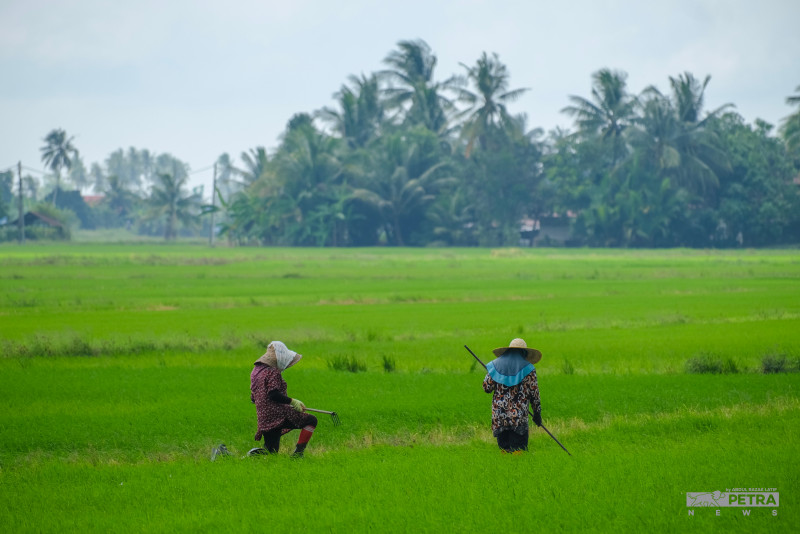theVibes.com:
Ministry refutes existence of cartel or ‘mafia’ manipulating padi, rice trade
Operation set in motion to ensure compliance with price set by government, prevent hoarding
Published on 05 Jan 2024 7:30AM

THE government has sought to dispel speculations of a cartel or “mafia” controlling the country’s padi and rice trade, contributing to problems of shortage and high prices faced by consumers.
The Agriculture and Food Security Ministry said that it has issued 39,000 licences in the effort towards ensuring that no such illegal ring monopolises the country's padi and rice industry.
Among others, the licences include those for wholesale distribution, export, import, rice milling, padi purchase, retail distribution of rice, and special approval to sell legal padi seeds (BPS).
The ministry thus denied that a cartel or mafia is involved in determining the prices of padi seeds and rice.
It said in a statement that it is carrying out enforcement operations to curb the existence of cartels and mafias as alleged by certain parties.
The industry is regulated by the ministry’s Padi and Rice Regulatory Board through the Control of Padi and Rice Act 1994.
"With this act, the ministry carries out regulatory activities through licensing and enforcement to ensure that the padi and rice industry develops in a healthy and orderly manner.
"This act also invests authority upon the director-general of the Padi and Rice Regulatory Board to issue licences and permits for padi and rice transactions involving milling, wholesaling, retailing, import-export and interstate transfer," the ministry said in a statement last night.
To ensure that all retailers sell legal padi seeds according to the price set by the government and that there is no element of hording the seeds, the ministry implemented an operation run by a task force to weed out those infringing BPS regulations from November 7 to 21 last year.
During the period, the ministry successfully revoked 22 BPS sales licences among retailers who violated the conditions.
"The Agriculture and Food Security Ministry reminds all manufacturers, wholesalers and retailers to always comply with the law and that we will not compromise with any party trying to take advantage of this matter.
"Strict action such as licence cancellation will be taken if there is a violation of the law," it said.
Datuk Mahfuz Omar, the chairman of the Farmers’ Organisation Authority (FOA), had said in an interview with The Vibes in November last year that the rice shortage faced by the country was due to poor yield from production.
Mahfuz said that if padi farmers can boost the yield rate, they would not have to undergo the troublesome process of planting seeds more than three times a year.
Padi farmers, including those under mega cultivation schemes, such as those under the Muda Agriculture Development Authority, are currently encouraged to plant up to five times annually.
Rising prices for imported rice have led to consumers flocking to cheaper local products. Households that find it difficult to afford higher food prices have had their purses squeezed.
With local rice able to meet only 70% of domestic demand, the FOA has begun implementing incentives to increase local production.
In October last year, Agriculture and Food Security Minister Datuk Seri Mohamad Sabu had announced measures to alleviate the shortage, including a move by the Federal Agricultural Marketing Authority to increase the distribution of local white rice in rural areas.
For Sabah and Sarawak, Mohamad said the government agreed to give a subsidy of RM950 per tonne for imported white rice beginning October 5, enabling imported white rice to be obtained at a retail price of RM31 per 10kg. – The Vibes, January 5, 2023
No comments:
Post a Comment